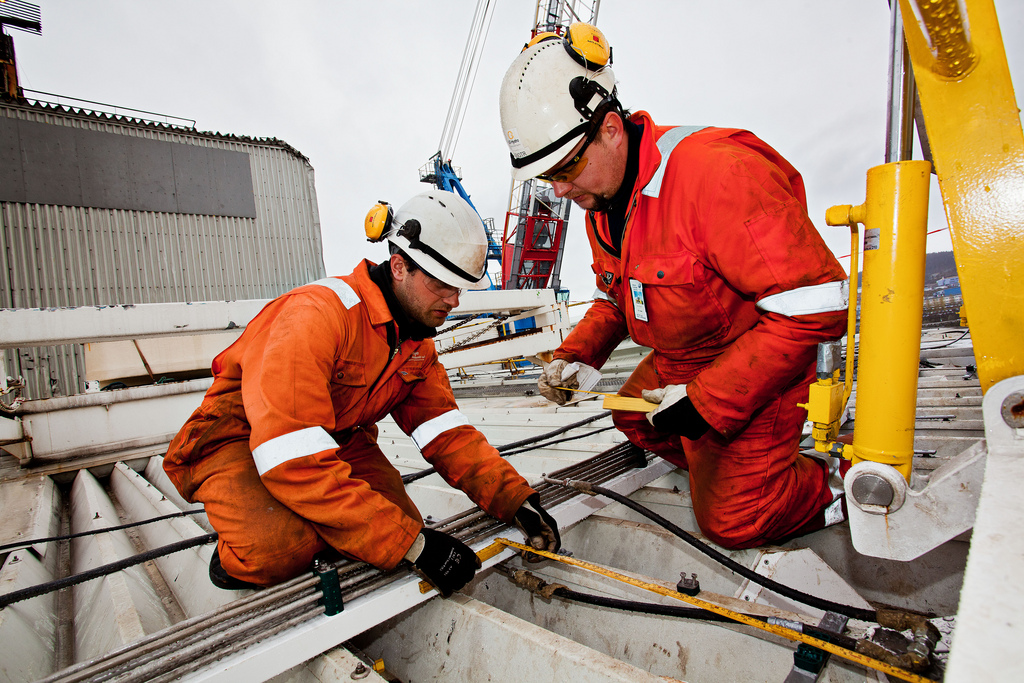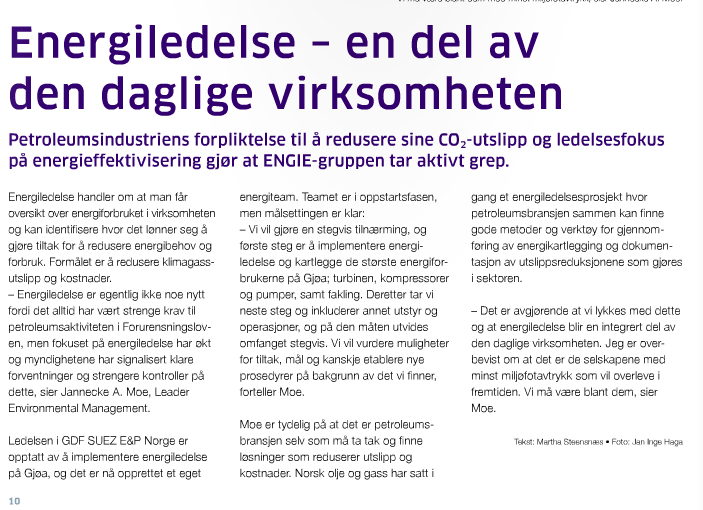The entire organization must be involved!
Continuous improvement in energy management can only be achieved by all becoming more engaged, motivated and knowledgeable. This often means changing the culture. How do you do that? The culture can be changed by influencing people's attitudes and behavior, and with leaders leading by example.
Culture must be built stone by stone and requires focus over time. Awareness and competence are two important factors in this context.
How to motivate?
- An energy manager can help with tips and advice on how everyone can get involved
- We are all motivated by a top management team that puts this on the agenda. Find an enthusiast ally in the management and ask them to spread the message on their level and throughout the organization.
- Remember to communicate the results achieved along the way (both environmental and financial) and connect performance against the targets that were set.

![]() What should be done
What should be done
Awareness is something "everyone in the company" should be involved in because energy is about a common effort. Awareness is largely about understanding:
- The benefits of energy efficiency for the environment and for the company (here, for many, the link to costs is important)
- The necessity to operate in accordance with its own energy policy
- The requirements laid down in the energy management system
- What happens if one does not operate according to the management system
- How personal behavior and attitudes can influence the energy consumption and contribute to achieving common energy goals
- Roles, responsibilities and skills required to implement energy management into each persons work areas
| Channels for raising awareness |
|---|
|
Competence development is more than just awareness. This is needed for those who are directly involved in energy management and staff that could impact the energy consumption in particular. This also applies to people who work on behalf of the organisation.
For a systematic approach, we recommend that you set up a matrix of competence elements that the different roles should have, do a gap analysis in relation to the current status, and use this as a tool for planning and implementing training.
Competence covers two main themes:
- Energy management in itself - how those involved understand, use and control the system for energy management
- Technical understanding - expertise to collect data and analyze the energy use and identify, evaluate and implement good improvement measures
Within the energy management you might consider creating your own courses or hiring consultants for external courses. This can touch upon the energy culture, the principles of energy management, implementation of the management system, etc. For the person responsible for energy management, other courses should also be considered, for example within communication and project management.
Within the technical skills, experience transfer between shifts and platforms is valuable. It's also a good idea to bring together the relevant discipline groups within a license one day a year to share experiences and ideas on how things can be done better. Technical courses can also be arranged with equipment suppliers.
![]() Who should be involved
Who should be involved
The energy team should have a central role in the development of materials, processes and evaluation of awareness and training. Including the following roles, depending on the scope and purpose:
- Internal Communication
- Other technical discipline managers who are not part of the energy team
- Top-management (eg. head of exploration and operations, HSE Manager at the group level, technology manager, COO)
![]() What should be documented
What should be documented
The following should be documented for competence, training and awareness:
- Identification of training needs, and measures taken to address these needs
- Training documentation that everyone has completed a basic course in energy management (eg. energy policy, objectives, etc.).
- For roles that can influence the energy consumption in particular, this should be included in the job description and training, and documented in the same way as is done for quality, health and safety.
![]() Challenges and opportunities
Challenges and opportunities
Here we would like to know more about your challenges!
![]() Energy management in practice
Energy management in practice
| ENGIE discussed energy management in their internal magazine: “Energy Management – Part of the daily business” |
|---|

|
![]() Where do you find this in ISO 50001?
Where do you find this in ISO 50001?
- Chapter 4.5.2 – Competence, training and awareness

